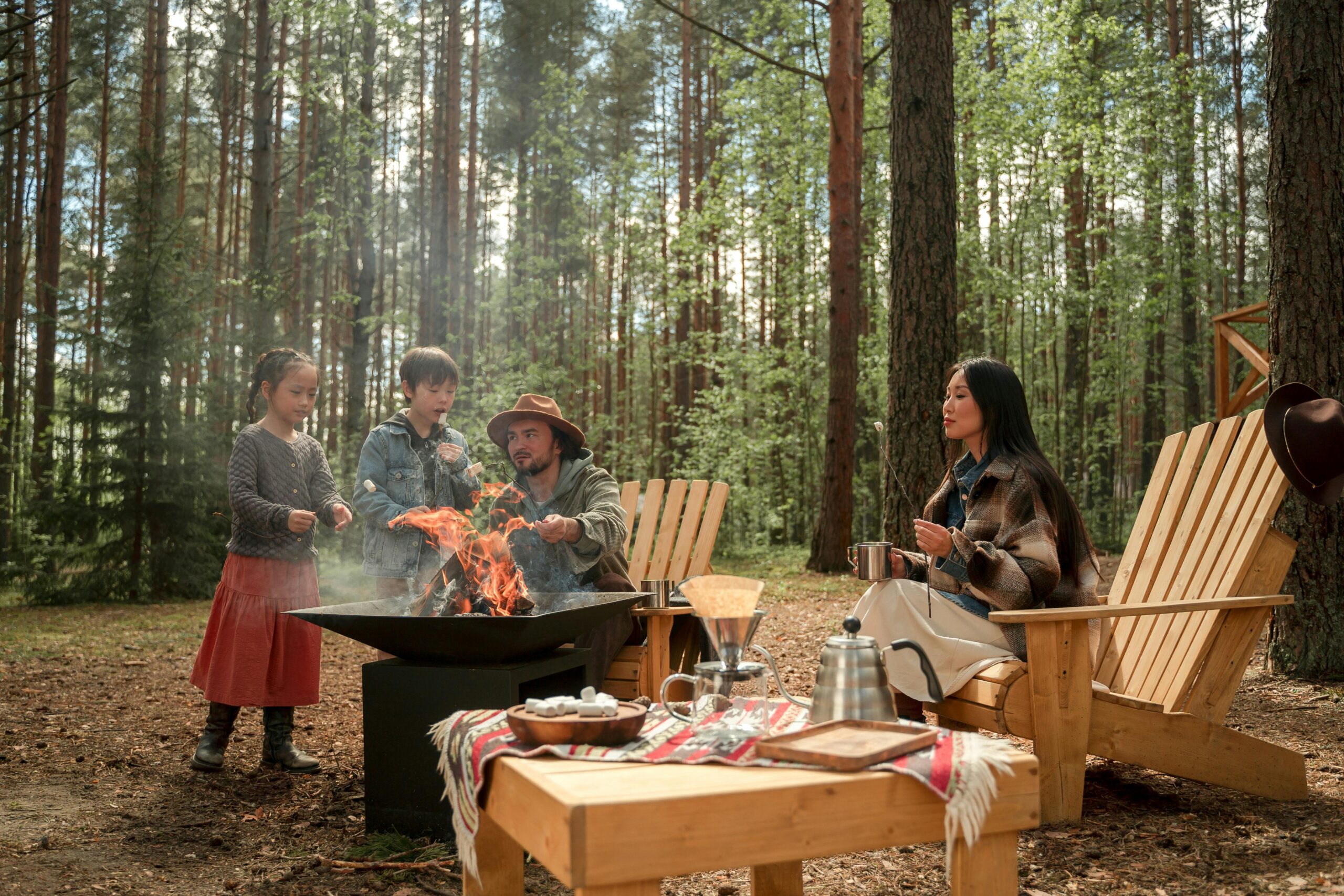Introduction
Camping offers a unique opportunity for families to disconnect from the hustle and bustle of daily life and reconnect with nature. A well-planned camping trip can create lasting memories and strengthen family bonds. Whether you’re camping in a tent, RV, or cabin, this comprehensive guide will help you plan a family-friendly camping adventure that everyone will enjoy.
Benefits of Family Camping
Family camping offers numerous benefits for both children and adults:
- Quality time: Camping provides uninterrupted time for families to bond and create memories together.
- Outdoor education: Children learn valuable outdoor skills and gain an appreciation for nature.
- Physical activity: Camping encourages outdoor activities like hiking, swimming, and exploring, promoting physical health and well-being.
- Stress relief: Spending time in nature reduces stress levels and promotes relaxation for the whole family.
Choosing the Right Campground
Selecting the perfect campground sets the stage for a successful camping trip:
- Location: Consider proximity to home, natural attractions, and amenities like hiking trails, fishing lakes, or playgrounds.
- Facilities: Choose a campground with facilities that suit your family’s needs, such as restrooms, showers, and laundry facilities.
- Activities: Research campgrounds that offer family-friendly activities like guided nature walks, ranger programs, or outdoor movie nights.
- Reservations: Make campground reservations well in advance, especially during peak camping seasons.
Packing Essentials
Packing efficiently ensures you have everything you need for a comfortable and enjoyable camping experience:
- Shelter: Choose a tent or RV that accommodates your family size and provides adequate shelter from the elements.
- Sleeping Gear: Pack sleeping bags, sleeping pads, and pillows for a restful night’s sleep.
- Clothing: Dress in layers and pack weather-appropriate clothing, including jackets, hats, and rain gear.
- Food and Cooking Supplies: Bring non-perishable food items, a cooler for perishables, a portable stove or grill, cooking utensils, and plates.
- Safety and First Aid: Pack a first aid kit, emergency supplies, and essentials like insect repellent, sunscreen, and a map of the area.
Planning Fun Activities
Organizing engaging activities ensures everyone has a great time during the camping trip:
- Nature Hikes: Explore nearby trails and scenic viewpoints, keeping an eye out for wildlife and interesting plant life.
- Campfire Stories: Gather around the campfire for storytelling, singing songs, or roasting marshmallows.
- Outdoor Games: Bring along games like frisbee, soccer, or scavenger hunts for outdoor fun.
- Crafts and Nature Projects: Collect natural materials like leaves, pinecones, and rocks to create nature-inspired crafts and art projects.
- Stargazing: Spend evenings stargazing and identifying constellations with a star chart or smartphone app.
Ensuring Safety
Prioritizing safety is essential for a successful camping trip:
- Supervision: Keep a close eye on children, especially near water, campfires, and steep terrain.
- Emergency Preparedness: Know the location of emergency services, carry a charged cell phone, and have a plan in case of emergencies.
- Wildlife Awareness: Respect wildlife and keep a safe distance from potentially dangerous animals. Store food securely to prevent attracting wildlife to your campsite.
- Fire Safety: Follow campground rules and regulations regarding campfires, use designated fire rings, and extinguish fires completely before leaving.
Leave No Trace
Practice Leave No Trace principles to minimize your impact on the environment:
- Dispose of Waste Properly: Pack out all trash and recyclables, including food scraps and packaging.
- Respect Wildlife: Observe wildlife from a distance and avoid feeding or disturbing them.
- Stay on Trails: Stick to designated trails to avoid damaging vegetation and habitats.
- Be Considerate of Other Campers: Keep noise levels down, respect quiet hours, and be mindful of your impact on other campers’ experiences.

Conclusion
Planning a family camping trip requires careful preparation and consideration, but the rewards of spending quality time together in nature are well worth the effort. By choosing the right campground, packing essentials, planning fun activities, and prioritizing safety and environmental stewardship, you can create cherished memories and instill a love for the outdoors in your children. Start planning your family camping adventure today and embark on an unforgettable journey into nature.
Check out how to plan a budget-friendly family camping trip!
Check out must have camping gear essentials for your next outdoor adventure!


I went on a lot of camping trips when I was younger. Your tips are spot on for making one a family friendly experience.
Planning a family camping trip can be so much fun! Taking the time to prepare and choosing the right campground will make the experience absolutely worth it. I hope you and your family have an amazing time and create lasting memories in nature!
I love that you left the tip about leaving no trace. We have been camping so many times and found all kinds of garbage and general crap left by previous campers. It’s really sad.
These are great ideas! My parents often took my brother and me camping as kids, and it was always so fun and memorable. I especially remember this special powder we would throw through in the fire, to make the flames dance in a rainbow of colours!
This guide on planning a family-friendly camping trip is fantastic! The step-by-step approach makes it so easy to follow, ensuring that everyone has a great time.
Nothing says family time more than camping. Thanks for the guide